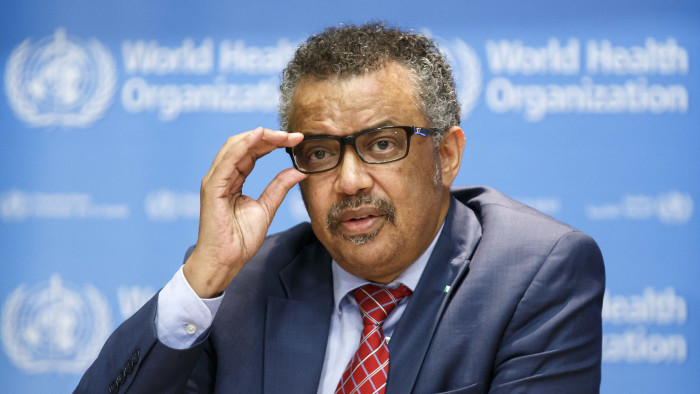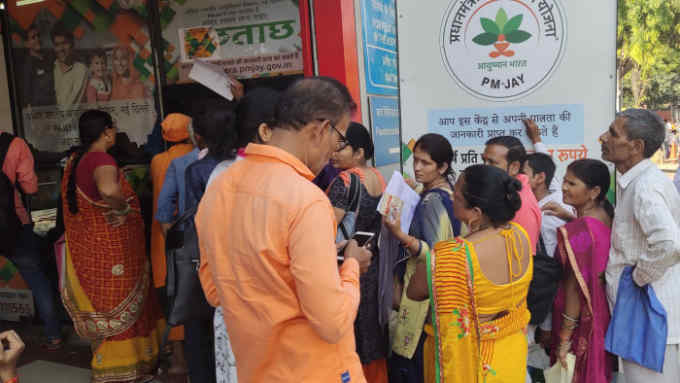Rich countries must pay more to achieve health for all in poorer countries

Simply sign up to the Pharmaceuticals sector myFT Digest -- delivered directly to your inbox.
Medical breakthroughs are meaningless if they do not reach people and patients — wherever they are.
If you live on as little as $2 a day, even finding 20 cents for a blood test, a hospital stay or paying for vital medicines may be too big an ask. Half the world’s population lacks access to essential health services. And 100m people are driven into poverty each year by the costs of healthcare: distress financing by any other name.
That is why the political declaration on universal health coverage adopted last month by 193 countries at the United Nations is so important for patients but also for healthcare providers overall.
Let’s hope the rhetoric is swiftly matched by action. Achieving UHC by 2030 means helping people across the globe access the good quality and affordable healthcare they need without suffering financial hardship.
It also means either doubling health coverage within ten years or leaving up to 5bn people without essential healthcare — let alone accessing innovative medicines and treatments the pharmaceutical industry can provide.
Health for all, in the words of Tedros Adhanom Ghebreyesus, director-general of the World Health Organization, is a smart economic choice.

Investing in UHC enables increases in GDP via productivity gains. Invest U$1 in immunisation and you will get $54 back — in saved healthcare costs and wages not lost due to illness, along with broader societal benefits. Healthy individuals create wealth and shared prosperity. The benefits for individuals, families, communities, businesses, and national economies are enormous.
How innovative medicines are priced can be a major barrier to access for patients in low- and middle-income countries (LMICs) when patients have to pay for their medicines out of pocket. Obviously, even with a UHC system, affordability of healthcare services may remain challenging.
However, the biopharmaceutical industry is ready to improve access to quality medicines. It is sensitive to the debate about cost and pricing. Through innovative financing mechanisms, transformative treatments are already now reaching patients. New partnerships, not least with industry, are enabling health authorities to reach many more patients in LMICs.
The biopharmaceutical industry has for years been involved in hundreds of partnerships to improve access to both essential and innovative medicines. Two dozen companies recently signed up for the Access Accelerated initiative, designed to strengthen health systems in partnership with local and global partners. It supports work on the ground to improve prevention, diagnosis, and treatment of non-communicable diseases (such as cardiovascular diseases, diabetes and cancer).
Still, the political debate is often marked by a single (and relentless) focus on affordability and price. This fails to recognise the complexity of health systems and financing required to achieve UHC.
The solution lies in balancing the need to incentivise research into future innovative treatments while ensuring that medicines are affordable for health systems and, critically, for patients and their families.
Access and, with it, universal health coverage, depend upon strengthening local healthcare systems, with a particular focus on primary healthcare, educating and training healthcare workers, repairing weak regulatory systems, streamlining supply chains, as well as tackling waste, inefficiencies, corruption and fake medicines.
We need to change the rules of the game, as the UN Declaration recognises. We must employ a whole-of-government, whole-of-society approach based on partnership. The question is no longer whether the private sector has a role to play in UHC but rather how to best work with the private sector in delivering it.
This is the only way to tackle the mounting global threat posed by the social and environmental determinants of health — from climate change via natural disasters to mass migration.
The way to improve access to medicines, quality generics as well as innovative drugs, is to ensure that they reach the patients and create conditions which allow for differential pricing to make innovative medicines more affordable and accessible in LMICs.
We advocate value-based pricing and that means advocating for some form of tiered pricing, whereby the wealthy accept to pay more for their medicines than the poorer and more vulnerable in society.
HIV and vaccines are examples where preferential pricing is given to least developed countries while the developed countries pay more.
Earlier this month, the US pledged $4.6bn to The Global Fund to Fight Aids, Tuberculosis and Malaria at its replenishment conference, while the contribution of Mali was $0.5m. Gavi, the Vaccine Alliance, hopes that wealthier countries will respond similarly to its target to save eight million lives from 2021-2025 by raising $7.4bn at its replenishment event in the UK next year.
Health for all is a journey unique to each country’s needs and priorities. If the political will is there for the long haul, as the UHC declaration would suggest it is, then countries should be able to find the necessary resources and partners across the private sector to achieve their health goals.
This makes UHC the right economic choice. And a win-win for all.
Thomas B. Cueni is Director-General of The International Federation of Pharmaceutical Manufacturers & Associations (IFPMA).

Comments